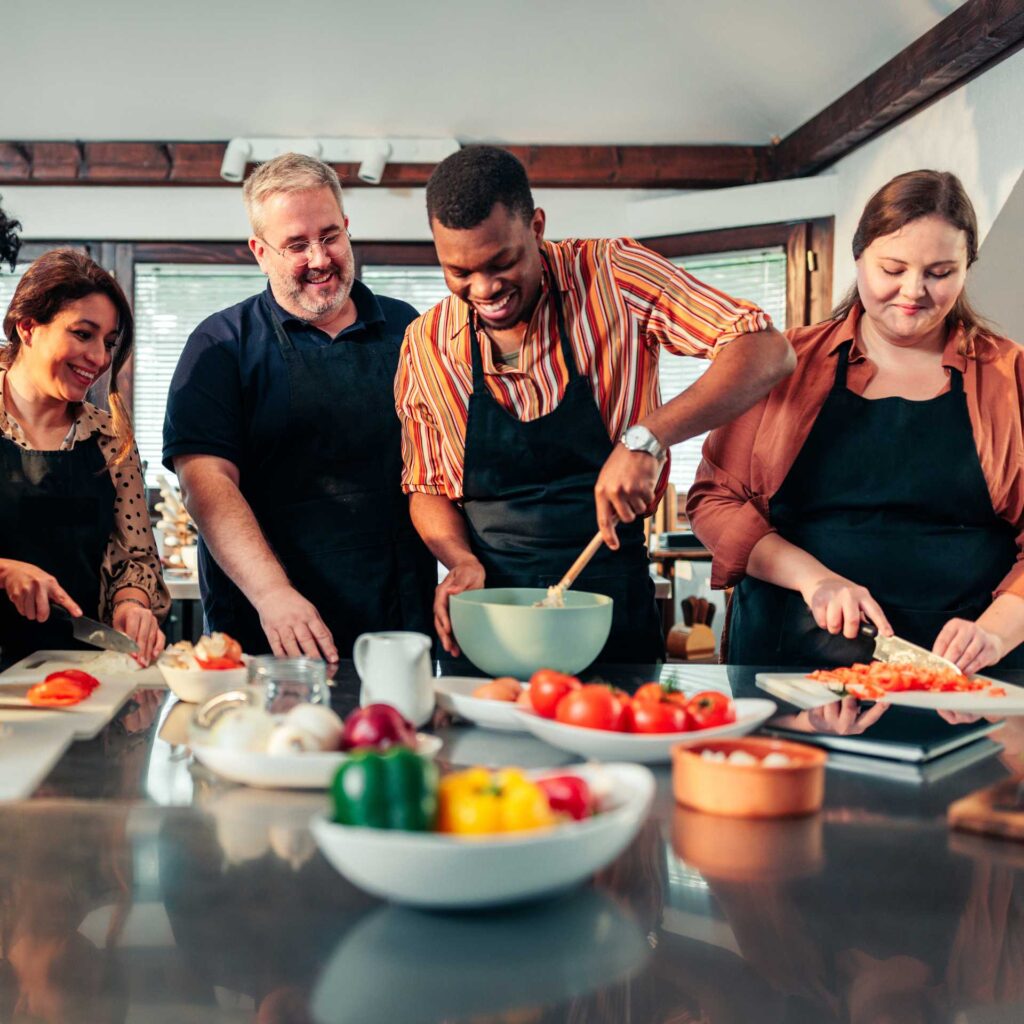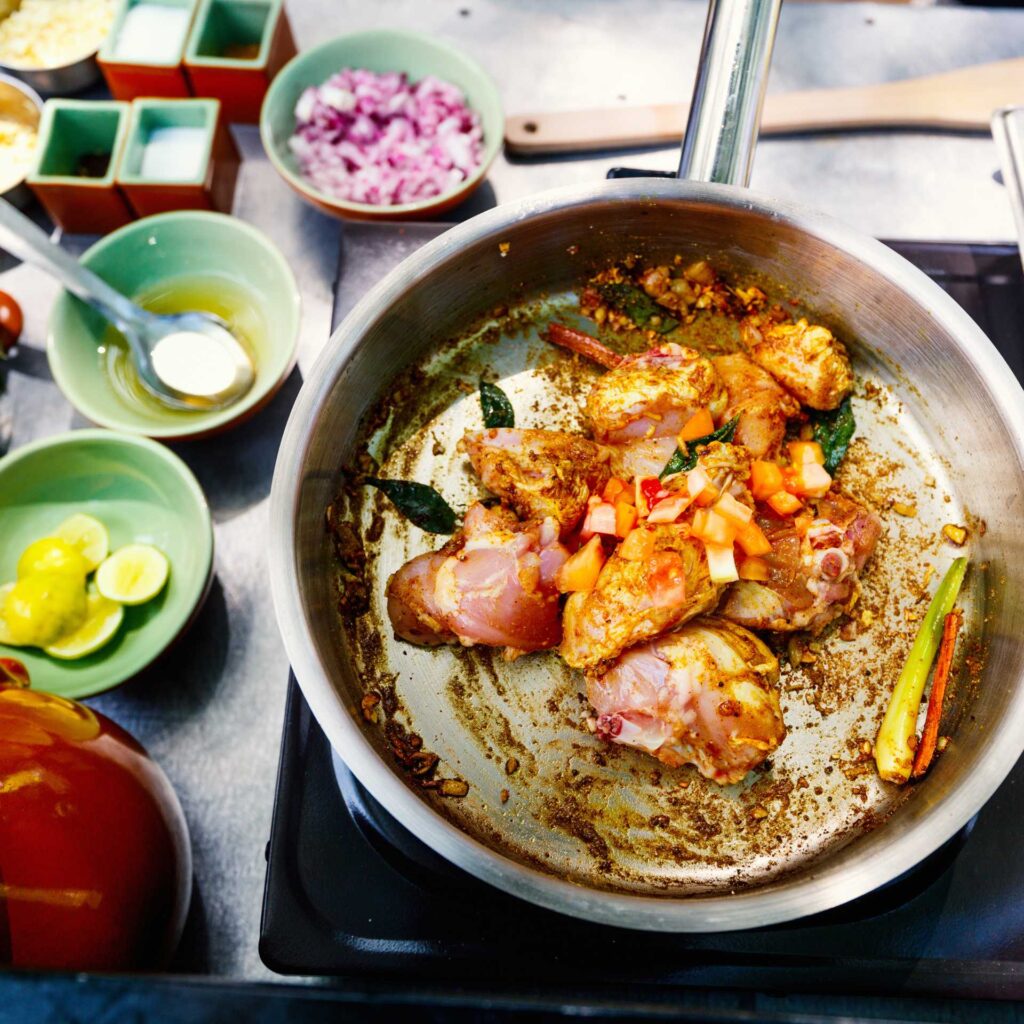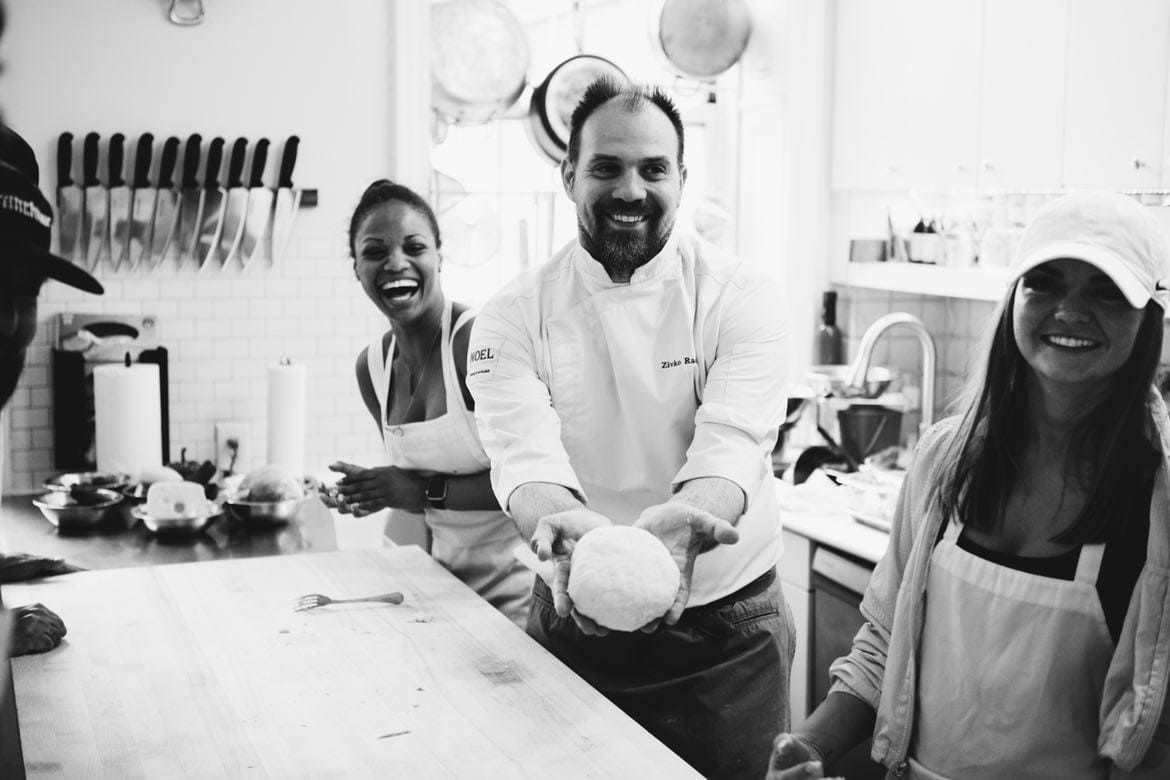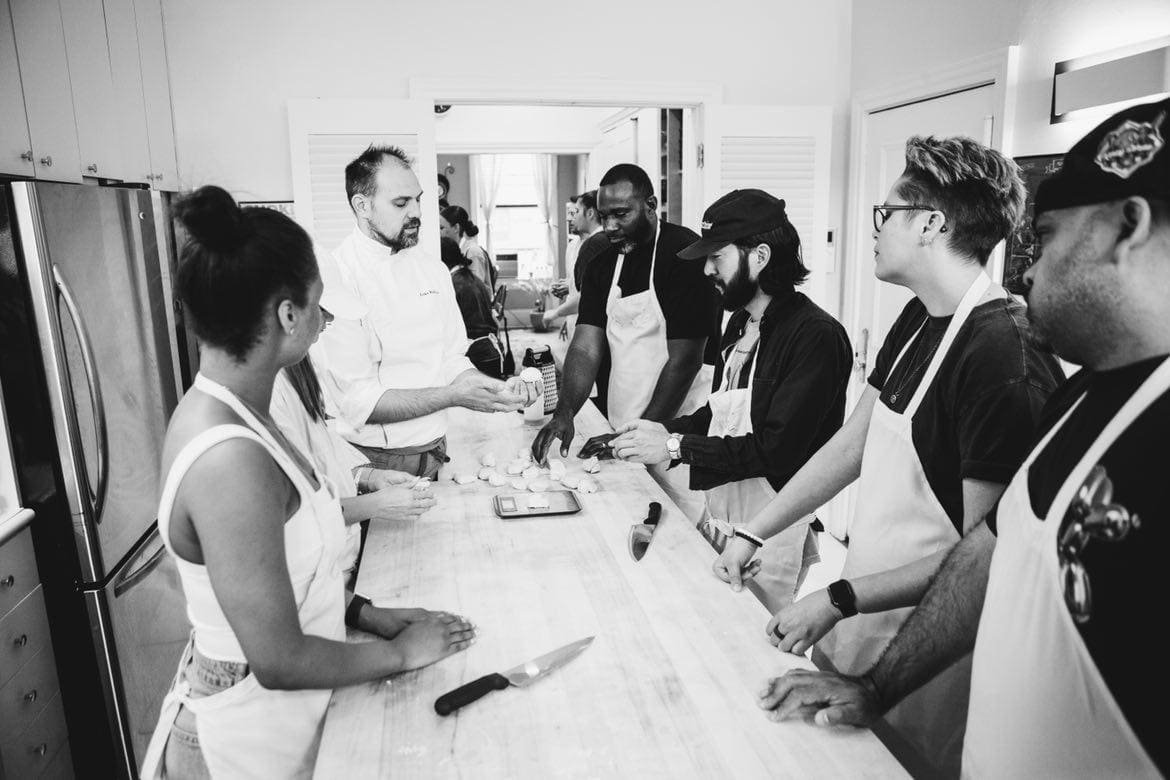Gourmet cooking classes are becoming increasingly popular among food enthusiasts and aspiring chefs. These classes promise a deeper, more refined approach to cooking, often featuring high-quality ingredients, advanced techniques, and instruction from top-tier chefs. But what exactly sets a gourmet cooking class apart from a standard one? This article explores the elements that make a cooking class ‘gourmet’ and why they are worth considering for anyone serious about elevating their culinary skills.
The Definition of Gourmet
To understand what makes a cooking class ‘gourmet,’ it’s essential first to define what ‘gourmet’ means. Gourmet cooking focuses on high-quality ingredients, meticulous preparation, and an emphasis on artistry and presentation. It often involves complex techniques and specialty ingredients that might not be found in everyday cooking. The goal is not just to create food that tastes good but to create a culinary experience that is memorable and sophisticated—check which cooking classes are available on Loza website.
High-Quality Ingredients
One of the hallmarks of a gourmet cooking class is the use of high-quality, often locally sourced, and sometimes rare ingredients. These ingredients are chosen for their superior flavor, freshness, and nutritional value. For example, a gourmet class might feature organic vegetables, free-range meats, and imported cheeses and spices. Using these top-tier ingredients ensures that the dishes prepared are of the highest standard and allows participants to experience the difference that quality ingredients can make in cooking.
Examples of Gourmet Ingredients:
- Truffles and Truffle Oil: Often used in gourmet dishes for their unique and intense flavor.
- Wagyu Beef: Known for its rich marbling and exceptional tenderness.
- Artisanal Cheeses: Such as aged Gouda or Roquefort, which add depth and complexity to dishes.
- Exotic Spices: Like saffron, which can elevate the taste profile of a dish.
Advanced Culinary Techniques
Gourmet cooking classes often introduce participants to advanced culinary techniques that go beyond the basics. These techniques might include sous-vide cooking, molecular gastronomy, and advanced pastry skills. Learning these techniques can be challenging, but they are essential for creating dishes that stand out for their creativity and precision.
Key Techniques in Gourmet Cooking:
- Sous-Vide Cooking: A method of cooking food in vacuum-sealed bags at precise temperatures, often used to achieve perfect doneness and texture.
- Molecular Gastronomy: The science of cooking, which includes techniques like spherification and emulsification to create innovative dishes.
- Advanced Pastry Skills: Techniques such as tempering chocolate and making complex desserts like soufflés and macarons.
Expert Instruction
The instructors in gourmet cooking classes are often highly experienced chefs with impressive credentials. They bring a wealth of knowledge and expertise, having worked in renowned restaurants or having formal culinary education. Learning from such experts allows participants to gain insights and tips that are not available in standard cooking classes. These chefs can provide personalized feedback and share their experiences, enriching the learning process.
Benefits of Expert Instruction:
- Personalized Feedback: Tailored advice to help improve techniques and rectify mistakes.
- Professional Insights: Tips and tricks from industry professionals that can make a significant difference in cooking skills.
- Inspiration: Exposure to creative ideas and new culinary trends that can inspire participants to experiment and innovate.
Comprehensive Curriculum
A gourmet cooking class typically offers a comprehensive curriculum that covers a wide range of topics, from knife skills and cooking methods to wine pairing and menu planning. This holistic approach ensures that participants not only learn how to cook specific dishes but also understand the principles behind gourmet cooking. The curriculum is designed to build a strong foundation in culinary arts, enabling participants to apply their knowledge in various contexts.
Topics Covered in Gourmet Cooking Classes:
- Knife Skills: Mastering different cutting techniques for precision and efficiency.
- Cooking Methods: Exploring various methods such as braising, roasting, and grilling.
- Wine Pairing: Learning how to pair wines with different dishes to enhance the dining experience.
- Menu Planning: Creating balanced and cohesive menus for different occasions.
Focus on Presentation
Presentation is a critical aspect of gourmet cooking. Gourmet cooking classes emphasize the importance of plating and garnishing, teaching participants how to present their dishes in an aesthetically pleasing way. This focus on presentation ensures that the food not only tastes great but also looks beautiful, elevating the overall dining experience.
Elements of Food Presentation:
- Plating Techniques: Arranging food on the plate in an attractive and artistic manner.
- Garnishing: Using herbs, sauces, and edible flowers to enhance the visual appeal of a dish.
- Color and Texture: Balancing different colors and textures to create visually appealing plates.
Hands-On Experience
Gourmet cooking classes provide a hands-on learning experience, allowing participants to practice what they learn in real-time. This practical approach is crucial for mastering advanced techniques and building confidence in the kitchen. Participants get to cook alongside professional chefs, receiving immediate feedback and guidance, which helps to reinforce their learning and improve their skills.
Advantages of Hands-On Learning:
- Immediate Application: Putting theory into practice right away to solidify understanding.
- Skill Development: Building muscle memory and confidence through repeated practice.
- Engagement: Active participation keeps learners engaged and motivated.
Networking Opportunities
Attending a gourmet cooking class also provides opportunities for networking with like-minded individuals who share a passion for culinary arts. Participants can exchange ideas, share experiences, and form connections that can be valuable for personal and professional growth. These classes often attract food enthusiasts, aspiring chefs, and industry professionals, creating a vibrant community of learners.
Networking Benefits:
- Shared Learning: Collaborating with peers to enhance the learning experience.
- Professional Connections: Meeting industry professionals who can provide career advice and opportunities.
- Community Building: Forming friendships and networks within the culinary community.
Conclusion
Gourmet cooking classes offer a unique and enriching experience for anyone looking to enhance their culinary skills. The combination of high-quality ingredients, advanced techniques, expert instruction, and a comprehensive curriculum sets these classes apart from standard cooking lessons. Additionally, the focus on presentation, hands-on experience, and networking opportunities adds significant value to the learning process. Whether you are a food enthusiast or an aspiring chef, investing in a gourmet cooking class can provide you with the skills and knowledge to create exceptional culinary masterpieces.





